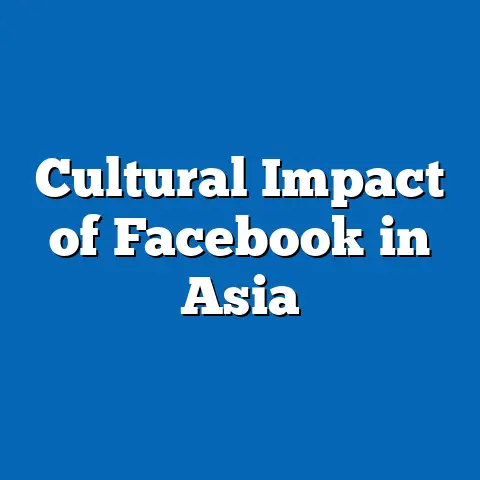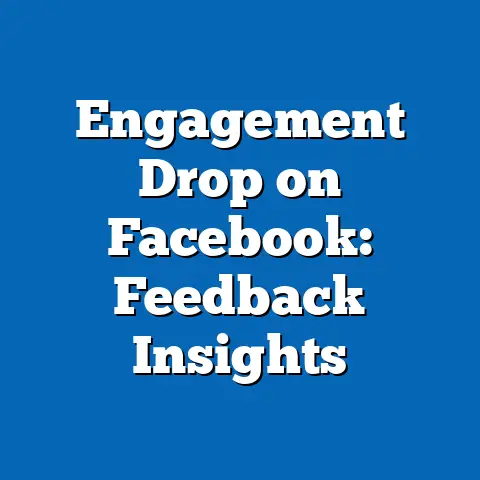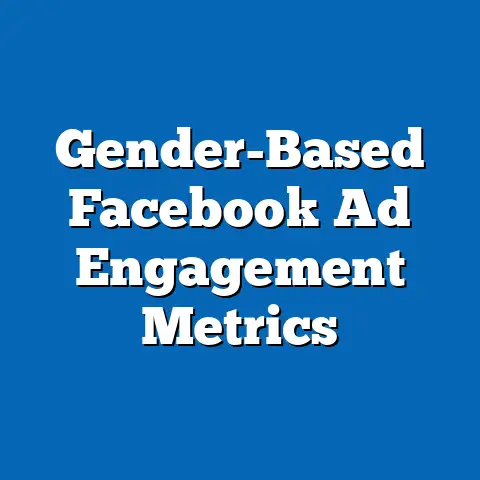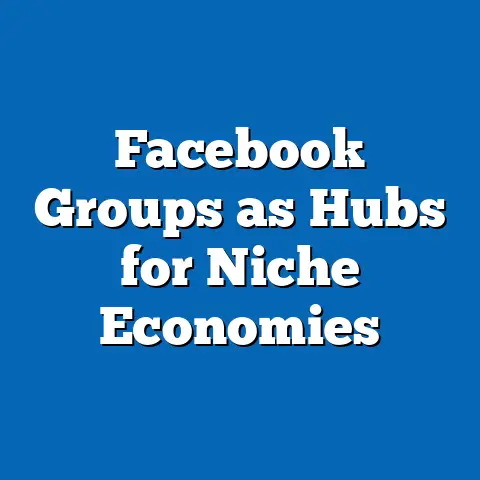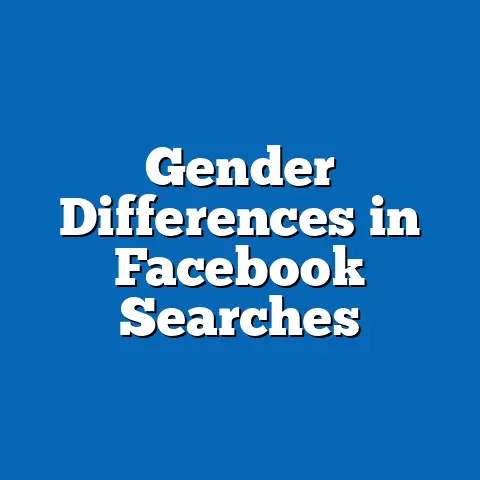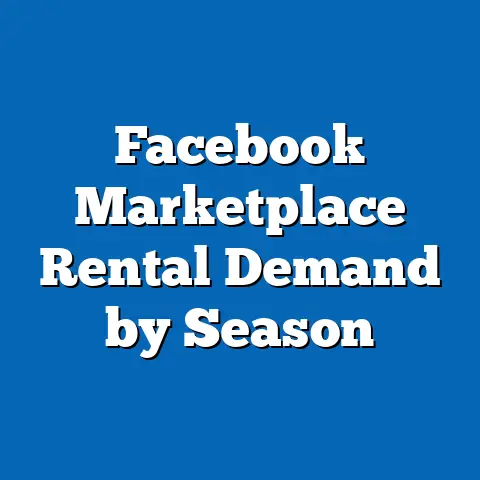Mental Wellness in Facebook Support Groups
Mental Wellness in Facebook Support Groups: A Generational Perspective
Did you know that as of 2023, over 1.6 billion people worldwide use Facebook groups, with mental health support groups seeing a 70% increase in participation since the start of the COVID-19 pandemic?
This staggering growth highlights the platform’s role as a digital lifeline for millions seeking emotional support, yet it also raises concerns about the quality of advice, privacy risks, and potential exacerbation of mental health issues.
In this article, we explore how generational differences shape the use of Facebook support groups for mental wellness, examining key characteristics, historical contexts, and societal implications.
Introduction
Facebook support groups have emerged as a vital resource for mental wellness, offering community and advice in an increasingly digital world.
For instance, groups dedicated to anxiety, depression, and stress management often boast thousands of members sharing personal stories and coping strategies.
However, the effectiveness of these groups varies significantly across generations, influenced by factors like technological adoption, life experiences, and cultural attitudes toward mental health.
Historical Context of Mental Wellness and Social Media
The evolution of mental wellness support has been profoundly shaped by technological advancements and societal shifts over the past century.
In the early 20th century, mental health was largely stigmatized and confined to institutional care, with limited community resources available.
The mid-1900s saw the rise of community-based mental health movements, such as the deinstitutionalization efforts in the 1960s, which emphasized outpatient care and peer support.
Generational differences are evident in this history.
For example, Baby Boomers (born 1946-1964) experienced the pre-digital era, where mental health support was often face-to-face through community centers or self-help books.
Generation X (born 1965-1980) bridged analog and digital worlds, witnessing the internet’s rise and using early online forums for support.
Millennials (born 1981-1996) and Generation Z (born 1997-2012) have grown up with social media, making platforms like Facebook integral to their mental wellness strategies.
The COVID-19 pandemic accelerated these trends, with a 2022 study by the Pew Research Center reporting that 70% of adults under 30 turned to online groups for emotional support during lockdowns.
This surge underscores how historical events shape generational behaviors, with younger cohorts leveraging digital tools amid isolation.
Yet, older generations like Boomers have also adapted, though often with more caution due to privacy concerns.
Defining Characteristics of Key Generations
To understand mental wellness in Facebook support groups, it’s essential to define the core generations and their characteristics, while recognizing the diversity within each.
Baby Boomers are typically defined by their experiences with post-war prosperity, civil rights movements, and economic stability, fostering a sense of resilience and community involvement.
They often approach mental health with a pragmatic, solution-oriented mindset, influenced by eras like the 1960s counterculture.
Generation X, shaped by economic recessions, latchkey childhoods, and the AIDS epidemic, tends to value independence and skepticism toward institutions.
This generation was among the first to adopt the internet for personal use, leading to early online support networks.
However, they may view social media with a mix of enthusiasm and wariness, balancing its benefits with risks like misinformation.
Millennials, influenced by globalization, the dot-com boom, and events like 9/11, are characterized by their digital nativity and emphasis on work-life balance.
They are more likely to seek mental health resources online, with a 2023 American Psychological Association survey indicating that 60% of Millennials use social media for coping strategies.
Yet, this generation also contends with “millennial burnout,” driven by economic pressures and social media’s curated realities.
Generation Z, the first truly digital-native cohort, has been molded by the Great Recession, climate change anxieties, and the ubiquity of smartphones.
A 2021 report from the CDC revealed that 42% of Gen Z adults have been diagnosed with a mental health condition, the highest of any generation.
They engage with Facebook support groups innovatively, often blending them with other platforms like TikTok for multimodal support.
These characteristics are not monolithic; factors like race, gender, socioeconomic status, and geography create significant variations.
For instance, within Gen Z, urban youth might access diverse online resources, while rural counterparts face digital divides.
Comparatively, while Boomers may prioritize in-person validation, Gen Z favors anonymity and rapid feedback, highlighting evolving mental wellness dynamics.
Mental Wellness and the Role of Facebook Support Groups
Facebook support groups serve as a digital haven for mental wellness, providing peer-to-peer advice, emotional validation, and a sense of belonging.
These groups range from public forums on depression to private circles for specific issues like postpartum anxiety, with moderators often enforcing guidelines to ensure safety.
According to a 2022 study in the Journal of Medical Internet Research, participants report reduced loneliness and improved coping through these interactions.
Technological factors play a pivotal role in their appeal.
Facebook’s algorithm promotes content based on user behavior, potentially connecting individuals with relevant support groups and amplifying mental health discussions.
However, this can also lead to echo chambers, where users encounter reinforcing but unhelpful narratives, as noted in a 2023 Meta-commissioned report.
From an economic perspective, these groups address gaps in formal mental health services, which are often inaccessible due to cost.
In the U.S., the average therapy session costs $100-200, prompting many—especially Millennials and Gen Z—to turn to free online alternatives.
A 2021 Kaiser Family Foundation survey found that 25% of young adults rely on social media for mental health support due to insurance barriers.
Social and cultural influences further shape participation.
For example, cultural stigmas around mental health persist in some communities, leading immigrants or people of color to seek anonymous online spaces.
Generational contrasts are stark: Boomers might view these groups as supplementary to professional care, while Gen Z sees them as primary resources, influenced by their tech-savvy upbringing.
Qualitative research, such as interviews in a 2022 study by the University of California, highlights the therapeutic value of shared stories in these groups.
Quantitatively, a meta-analysis in the Lancet Psychiatry found that online support interventions reduce symptoms of anxiety by 20-30% for participants under 35.
Yet, experts like psychologist Sherry Turkle warn of the “illusion of intimacy,” where digital interactions may not fully replace face-to-face connections.
Comparative Analysis Across Generations
Comparing generational engagement in Facebook support groups reveals both commonalities and divergences, shaped by life stages, technological access, and societal contexts.
Baby Boomers often use these groups for practical advice on aging-related issues, such as managing chronic illness or grief, with a focus on community building.
For instance, a 2023 AARP study showed that 40% of Boomers in support groups report improved emotional resilience, though they are less frequent posters due to privacy concerns.
Generation X, sandwiched between analog and digital eras, approaches these groups with a balanced perspective, seeking support for midlife challenges like career stress or parenting.
They are more likely to moderate groups or verify information, drawing from their experiences with early internet skepticism.
In contrast, Millennials engage more actively, using groups to navigate work-life balance and social isolation, with a 2022 LinkedIn survey indicating that 55% of Millennials find online communities helpful for professional burnout.
Generation Z stands out for its innovative and intensive use, often integrating multimedia elements like videos and memes into discussions.
A 2023 Pew Research report noted that 70% of Gen Z users participate in mental health groups weekly, compared to 45% of Millennials.
However, this generation faces unique risks, such as cyberbullying or exposure to harmful content, as evidenced by a WHO study linking excessive social media use to higher depression rates among teens.
Acknowledging nuances, not all members of a generation fit these patterns; for example, a Gen Z individual from a low-income background might have limited internet access, reducing participation.
Economic factors exacerbate these differences: Boomers, with higher homeownership rates, may have stable environments for online engagement, while Gen Z deals with gig economy instability.
Culturally, diverse subgroups within generations—such as LGBTQ+ youth or ethnic minorities—may find tailored groups more beneficial, fostering intersectional support.
Societal Implications of Mental Wellness in Facebook Support Groups
The rise of Facebook support groups has profound societal implications, particularly in how they influence culture, workplaces, and public health.
On a cultural level, these groups normalize mental health conversations, challenging longstanding stigmas and promoting empathy across generations.
For instance, the #BellLetsTalk campaign on Facebook has raised awareness, with over 1.5 billion impressions in 2023, encouraging open dialogues.
In the workplace, support groups help address mental health challenges exacerbated by remote work and economic uncertainty.
Millennials and Gen Z, who dominate the modern workforce, often use these groups to cope with job-related stress, potentially improving productivity and retention.
However, experts like organizational psychologist Adam Grant caution that over-reliance on informal online support might sidestep institutional responsibilities for employee well-being.
Public health implications are significant, as these groups can bridge gaps in professional care but also spread misinformation.
A 2022 study in JAMA Network Open found that while 60% of group advice aligns with evidence-based practices, 40% includes unverified remedies.
This duality affects generations differently: Boomers might supplement groups with doctor visits, while Gen Z could prioritize peer advice, risking inadequate treatment.
Broader societal shifts include increased digital literacy and community building, yet also concerns about data privacy and algorithmic biases.
For example, Facebook’s data policies have faced scrutiny, with a 2021 FTC report highlighting risks of user exploitation.
These implications underscore the need for generational-aware policies, such as age-specific guidelines, to maximize benefits while mitigating harms.
Future Trends and Uncertainties
Looking ahead, the intersection of mental wellness and Facebook support groups will likely evolve with emerging technologies like AI and metaverses.
Generation Z and Alpha (born after 2012) may pioneer virtual reality support groups, offering immersive experiences for therapy.
However, uncertainties remain, such as the potential for AI-driven moderation to exacerbate biases or deepen digital divides.
Experts predict that by 2030, mental health apps integrated with Facebook could reach 50% of global users, per a 2023 Gartner forecast.
This could enhance accessibility for underserved generations, like rural Gen Xers, but also raise ethical questions about data security.
Forward-looking insights suggest promoting hybrid models—combining online and offline support—to address generational needs.
In conclusion, mental wellness in Facebook support groups reflects the dynamic interplay of generational characteristics, historical events, and societal forces.
By fostering understanding across cohorts, we can harness these platforms for positive change while navigating their challenges.
Ultimately, a nuanced, inclusive approach will be key to supporting mental health in an increasingly digital world.

